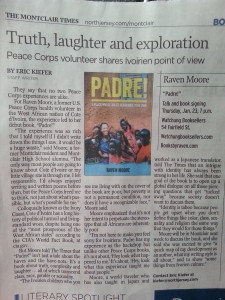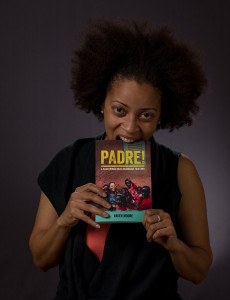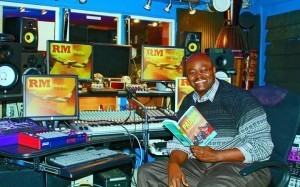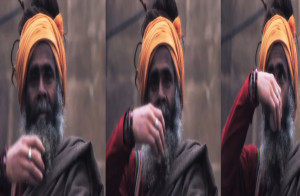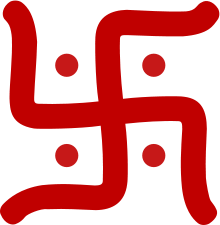Raven Moore's Blog, page 15
February 3, 2014
Naked or Burned
363 wings in 30 minutes
Molly said
Choje Akong is dead
Miley Cyrus naked again
Young wives in Afghanistan stand and burn
Monks the same
Dalai Lama laughs
Lhasang Tsering screams
my right
to sanity
is in that Nike Store
so monks storm it
like Detroit
‘too much enthusiasm
too much emotion’
Dalai Lama says
again
ethnic Chinese
become the majority
is still the majority everywhere
in the world
in Tibet
Ghengis Khan would like
Rihanna
dances
more than fights
pacifism is a gift
unknown to those who flaunt it
Miley is naked again
You can’t resist what you don’t know
Give it away to a stranger
who may
or
may not
believe
You play polo
with the soldiers who pretend
to be monks
pacifism is an art
carved into
altruistic grains
of rice and men
Miley’s naked again
Beyonce
is not too far behind
we play games
with impermanence
shooting to kill
at will
Singing is a higher power than
Gods know
Gods blow
chances to forgive and forget
paid debt gets me from samsara
to nervy nirvana
So I run
18,000 feet to the Tibetan plateau
and When a dog chases me
I face it
the Moustache Brothers know no other way
but to laugh
is never a mistake
Afraid to die is dying twice he said,
hit on the head
Burma=Myanmar I guess
6 million Tibetans screaming ‘walk’
Jesus was a pacifist
Ani Pachen told me
whether you win
or lose
it’s not about the game
it’s about you
acting like her mother
Now she has two
broken legs
carry her into the water so she can
float
after that man
raped
that woman
raped
baboons the same
maybe if she sneaks out with a rifle
she will be mistaken for a guard
maybe if she sneaks out
she will be mistaken
for a pacifist
peace only
exists
in the mind
so open it
Miley puts clothes on and becomes
a body with clothes
cremated on stage
a thinking on display
is not action
only naked people
get a sky burial
nothing to waste
neglecting ourselves
for the good of humankind
is a balance
no man
has ever mastered
that’s why
Miley is naked again
trying to excite me
‘i’m naked but you can’t have me’
is the definition
of freedom
and everyone else waits
for everyone else to stop
and think about it
January 26, 2014
Which one of these 3 photos is offensive to you?
Alexander Kargaltsev’s response to Dasha Zhukova sitting on a Black woman
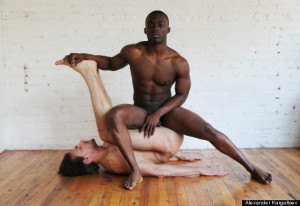
Dasha Zhukova sitting on a Black woman

January 25, 2014
What a Runner Must Do
EXCERPT from “Padre!” by Raven Moore
The air is fresh. A gentle blue seeps through the dark sky. Here I go. My college spandex from the lone year of track I enjoyed at Georgetown still maintains. Red basketball shorts on top keep me modest and a white T-shirt covers me for the first time in a while.
I am light on the red sand beyond the porch, aiming not to leave footprints. Off to the quiet of a run —one thing I love. I step onto the main dirt road which splits right at Bogo’s house, and here turn right. In a few hundred yards, the side road disappears into the tall foliage that blocks the rest of the wide path from view. I’ll be hidden as soon as I get past this point . . . Yes! The courtyard along the side road, across from Bogo’s house, is usually full of life, movement, and children running adventurously but not now.
Fire smokes out from underneath an appatam right before the foliage seals me onto the disappearing road. Someone is awake. My heart beats fast. The blue sky lightens by the second. I time the sunrise perfectly and if I miss waking up at the right time then I do not go. Being seen, asked a question, judged, called out, said ‘good morning’ to, called ‘La Blanche,’ or any of that — hell no. As far as I know, nothing but the smoke has seen me.
A slow trot allows my eyes to adjust to the new darkness on the path that the foliage creates. Ten seconds in and I am a cheetah, or whichever animal that is with night vision. Yeh, definitely a cheetah because I can’t see shit! What in the world am I doing? Oh my God! I’m going to be attacked by a lion.
I’m going to be attacked by a lion!
After a few hundred yards more the road opens up wide. My heart breathes. Something yet formless in the dark scurries across in front of me. I do not worry about snakes because our encounters have never been negative. We’ve got a pact. Anything else that might be out here . . . let’s just hope it does not bother me as I will not bother it. I figure any path without grass growing on it is a man-made path, tended to, walked on fairly regularly, and has someone or some village on the other end of it.
Huuu Haaaaa. Huuuuu Haaaaaaaa. No air in the world like this. My capillaries open, my eyesight sharpens, my limbs loosen and swing. I hear nothing. No babies crying. No Bèté. No Jula. No French. No Senoufo. No Baoulé. No Mossi. The path widens more. The foliage shortens a little. Either that or the darkness shows the true length of the tall grass, as it appears shorter in the emerging light. Aaaaaah. A dip here and there but an adventure. The road moves straight ahead. I run enough to know how far I go just by watching the road. There are slight hills and the biggest hill has a fresh miniature pool of water waiting for me at the bottom that I cabriole over. When did it rain?
The road looks different every day. Something grows where it had not been before. Something disappears.
A man walks in my direction ahead one morning. He’s fine, too. He starts to slow down but then picks up the pace. I give him a look to say ‘I know what I’m doing here, what about you?’ If I’m going to keep running early without anyone and no one knowing, then I’ve gotta’ act like me and my bright red shorts belong. His machete drops from his shoulder, down to his side, and he keeps walking as he watches me pass. It’s not a ‘you look good girl’ watch but a ‘this is some weird shit, I’m about to cut you’ watch.
I look like a ghost to him at 5 a.m. out here this way with no machete, no bag of seeds, no jug of water, and no one accompanying me. Hallucinations must just be someone trying to do something a little different at a strange hour. His morning walks will never be the same. Yes, you have just seen a ghost.
Raven Moore is the debut author of “Padre!: A place whose rules rearrange your own”
- Now available in all stores. –
January 21, 2014
Truth, Laughter and Exploration
A New Kind of Poem
Documenting
my progress
as a first-time,
published
author. Many
more to come.
Eureka.
January 4, 2014
Stronger
Movement is stronger than weight
a child who carries
bricks
on their head
makes her wonder
if she is
right
side
up
or
upside down
with the earth
that’s smashing
down on her
backwards way of living
nothing wanting but for
lightness
of mind
so she’s not left behind
in the dirt
that’s directing her
do it
allowing her to come and go
so much of it
can’t quit
until there’s no more dirt left
there
just pain and death
for you
a light can’t be shining from you
just through
with you
and gone
how can she carry that
she asks herself
move
and then she moves and knows that
if she keeps going
movement will be stronger than weight
Yellow Moon
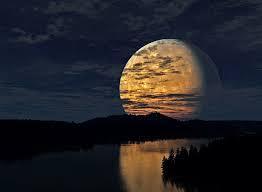
I’ve never seen a yellow moon
but I’ve felt it
Cold and hot
Blurry beams of light
Pushing through my vision
Sitting on my thoughts
Weighing down my feelings
Getting stuck in my heart
Yellow, brown, and fuzzy brown
things floating around
confused with a crime
and remnants make me
enlargen my view
trying to get more of what I had
before
I had it
when it happened
A clarity of needing
and still never getting
even after gotten
I’ve never seen a yellow moon before
but I’ve felt it
December 11, 2013
Moving Love
is love that sifts through
all the forms and
persists passed all
old
grieving
things
that suck
the blood from you
when you’re dead
in the grave
moving love
still
moves forever
December 5, 2013
Take a Bite out of “Padre!” for the Holidays
November 25, 2013
RM x 2 !
Finally my book by Raven Moore is here!!! Raven dives into identity from the Ivoirien point of view. Color, class, gender, sexuality, and more- “PADRE” takes you on an intense yet funny adventure that teaches you how to create a unique point of view. Raven is that missing voice from Generation X and she gives this voice to you in the way Generation Xers would use it, when they would use it, and why they would use it. You feel like you are right there with her. She is that one writer who knows how to generate a global discussion on transcultural issues without giving you a headache-making you want more. Read it! -Roger Muntu-
October 31, 2013
the color of the soul in india
There is something about The Color of the Soul directed by Alberto Martos that is a little bit extra. I could mean the actual content or I could mean the way the content is so superiorly presented—from the cinematography to the digital graphics—or I could just mean what it overwhelmingly reflects about us.
The complex nature of the socio-economic-religious system in India proves to be an extreme example of how each person on earth contributes unique elements that show our imaginations to be much greater than life itself. When that storm is raging inside of you, if you just stop for a second and listen to what’s around you, quite usually nothing is happening at all. The wind might be blowing. The birds might be chirping. That’s pretty much it.
But, at 330,000,000 Hindu Gods, something extra is definitely going on when Indians almost have more Gods than the entire population of India itself. We sure do complicate things. I look at the image of the man above drinking tea in this film and at first I’m confused because he doesn’t fit into the reality that I know, but it’s really not so complicated. He is white and black. He is light and dark. Exactly what I see. Or, he is European and Asian, if you need another visual, and “race mixing” has nothing to do with it. Color is only a little more than a random attribute among us. It says little about how we are connected. Other things say much more.
As the film progresses, it gives you more and more extra. I learn about the dichotomy of Ghandi’s approach to the British on the one hand vs. Ambedkar’s approach on the other. It reminds me of the dichotomy between King and Malcolm X. Peaceful protest versus any means necessary. And ironically, even as an Untouchable, a member of the Dom caste in India, Ambedkar beat the odds to become known as the Father of the Indian constitution. If he had looked at his prescribed place as the lowest of the low in the Hindu caste system and stopped himself there, none of his reforms for the education of all Indians, regardless of caste, would have seen the light of day. He clearly saw that his life did not have to be as complicated as his imagination could limit him. I say it this way because sometimes seeing things in a simple way frees us to do more than our imaginations could ever do for us—our imaginations sometimes creating dangers, limitations, and divisions where there are none.
At times, we would all like to believe that we are so disconnected, unique, and un-influenced by one another. That we are so special. But, language is one strong indicator to the contrary. Take aryan, aubergine, avatar, cheetah, ganja, jungle, juggernaut, jackal, karma, lilac, loot, opal, orange, rice, singapore, sugar, sulfur, and zen, for example—all of these words come almost directly from Sanskrit—a language much older than Latin. English has for a very long time adopted words from languages all over the world, which is in part the reason why it is one of the most inconsistent languages. The way English speakers say words, for example, and the way the letters sound in the alphabet, are two different things. If you’ve ever studied other languages, you know English is not the norm. The British show great diversity in this way—a very great display of connection—even if some try to hide it with words like Anglo-Saxon… In this same way, Indians show a lot of their diversity and connection by the number of religions they have merged into one—Hinduism.
There are the connects and the disconnects, but in a backwards way, the disconnects can also come out to be yet other examples of our connects. I say soda. You say pop. I say sneakers. You say tennis shoes. I say backpack. You say knapsack. I say boot. You say trunk. I say elevator. You say lift. We are seeing the same thing. We just approach it differently.
How, for example, the Jainism symbol for goodness, the swatstika, which was and still is a religious symbol all across Asia, suddenly became the symbol of hate after the Nazi party adopted it, I’ll never know. A Jainist gives it the meaning of love. But, a Jewish person will now inevitably give it the meaning of hate. This flip in meaning of a symbol is the same as the flip in usage of all the word pairs I just gave. There are no two countries in the world that use English the same way. There are no two countries in the world that adopt religions the same way. But, the disconnects certainly have connects when we take the time to stop running wild with our imaginations and look at all the evidence staring right back up at us.
I think about all of the contradictions so perfectly stated and perfectly unstated in The Color of the Soul and I realize that it’s not so odd; the innumerable ways we can approach the same thing. That a people of so many origins could have so many structures in place, makes sense. Indians go from the darkest to the lightest, from straight hair to curly African hair. Even Muslim Pakistan used to be a part of India’s already large mix until the British separated them on India’s “independence” from England… Yeh, you can go now but I’ll just keep your arm. Thanks!
When you really think about it, the disconnecting connects are actually exciting. Many Americans call themselves Christians but Blacksmiths, Carpenters, Bakers, Fishers, Drivers, and Priests—these are all examples of occupations that English speakers have given to themselves as surnames—possibly remnants of our own caste system… as in, when English speakers might have been influenced by Vedism the same way ancient Indians were influenced to start giving caste names by occupation as shown in The Color of the Soul?… Well, English probably didn’t even exist then, but you understand what I’m saying.
And just when I was ready to wind down, the Brahmin in the film brought me to yet another contradiction. The Brahmin are the highest class in Indian society—the priests, the artists, and the teachers… Brahmin and Burakumin… sound pretty similar, don’t they? Take out the Japanese proclivity to add vowels after every single consonant, even when the Japanese are practicing another language, and it’s quite possible that when the Japanese talk about Burakumin, they might be, now unknowingly, referring to Brahmin. People travel, you know? I’m sure bits of Buddhism-influenced Hinduism spread to Japan from India along with the Buddhism now so entrenched in Japanese society today… but then things got flipped for one reason or another. If my theory is correct, how ironic it is that the highest of society in India are now the lowest in Japanese society and now perform the same undesired tasks as the Dom caste in India. But, why not? If a boot is a trunk and the swatstika can represent hate, then anything is possible.


